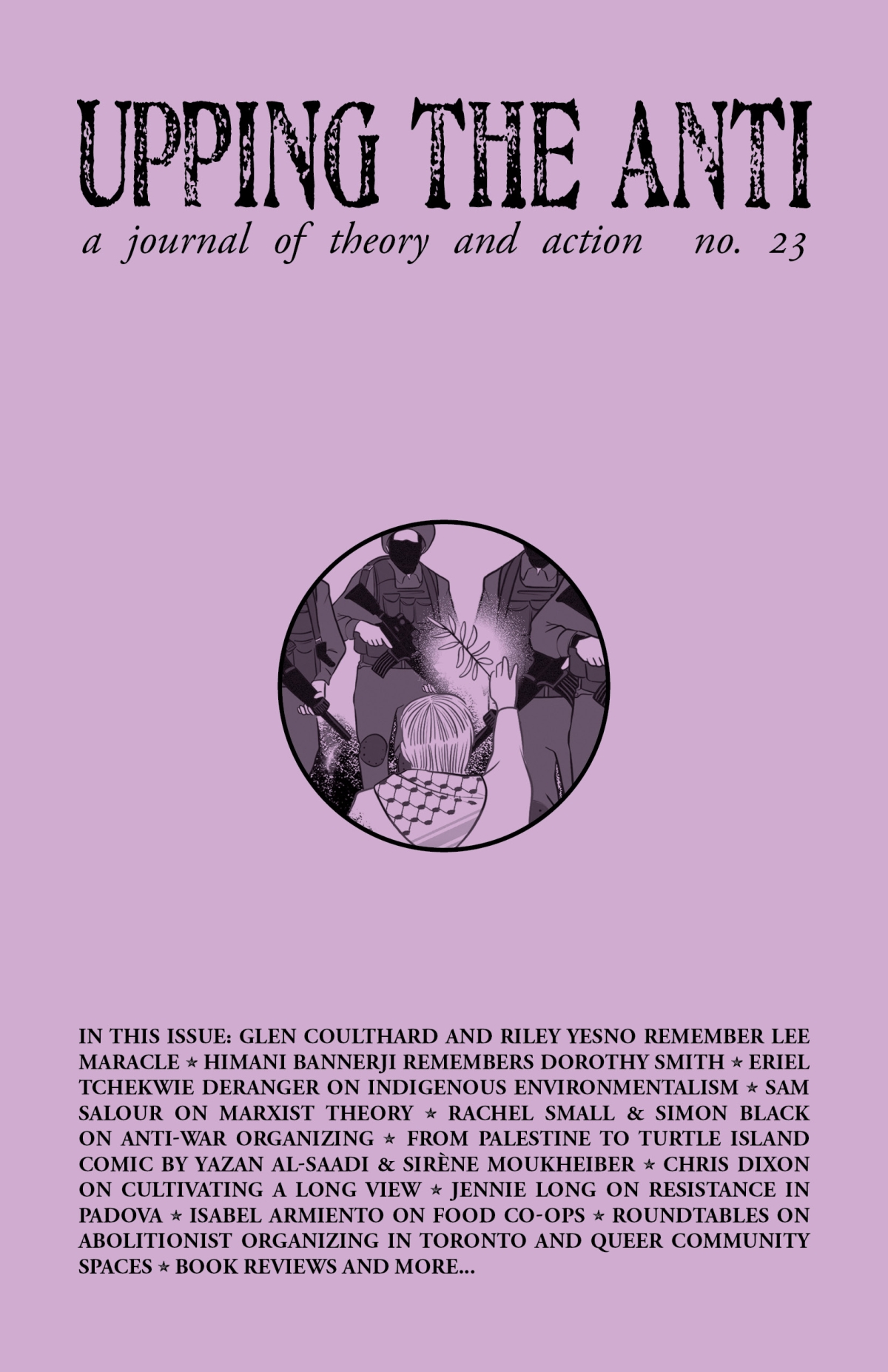Decolonizing Principles of Organizing
I read with great interest the piece by S. Awâsis, “What Do We Mean by Indigenous Anarchism?” Defining terms is deeply important in the work of resistance, since so many have been stigmatized, “anarchy” being one example. Often cast in a negative or “lawless” light, this overview provided a much appreciated, non-white-supremacist lens through which to reclaim the term as one that centres relationships, decentralizes power, and heeds natural laws. The author paints a vivid picture of the ways in which an Indigenous understanding of anarchy is inherently, and necessarily, counter to the patriarchal, individualistic, hierarchical structures of colonial systems, which is the very hegemony that stigmatizes (and criminalizes) such forms of resistance. Considering queerness as an attribute of anarchy was particularly poignant, a celebration of what is deemed “wrong” in dominant culture. The diversity celebrated in the author’s description of anarchy lends resilience to movements, just as diversity enhances the resilience of any system. We are seeing the consequences of the rigidity of our current dominant systems, which function (and fall) exactly as they were designed to do.
As a relatively novice organizer of European descent, I notice my own discomfort with the emphasis on relationships that Awâsis describes: “organization that implements natural law through land-based kinship systems of reciprocal responsibilities” (122). Because colonial values and structures have devalued and exploited planetary systems in order to feed the machine of “infinite growth,” we are collectively in a race against time. Prioritizing relationships and reciprocity in activism feels unproductive, a manifestation of my deep immersion in the capitalistic and meritocratic paradigm in which I was raised. This reinforces the emphasis on technoscientific solutions that demand and generate financial capital, again perpetuating systems that depend on inequity and that fundamentally devalue life. Those who benefit from these systems cling desperately to them, and because they hold power, control the narrative and mythology about what is necessary to address our many planetary crises.
Kyle Whyte also explores this discrepancy in his paper, “Too Late for Indigenous Climate Justice.” 1 Although we must urgently address the climate crisis, meaningfully addressing the critical aspects of relational justice inherent in mitigating the crisis takes time. Whyte writes, “consent, trust, accountability, and reciprocity are qualities of relationships that are critical for justice-oriented coordination across societal institutions on any urgent matter. Yet they are precisely the kinds of qualities of relationships that take time to nurture and develop. That is, they are necessary for taking urgent action that is just, but they cannot be established urgently.” I struggle to know how to resolve this contradiction, through the essential work of decolonizing my own mindset in a world that wants me to stay colonized. And yet when I experience despair, I am reminded that relationships, community, and diversity are fundamental to health and life; without these, what are we acting to save?
Centering our relationships with the land, water, air, more-than-human beings, and one another is the only way forward. This is the essence of Indigenous anarchy, as described by Awâsis: a “‘returning to ourselves’ and the land in a way that amplifies place‐based relational networks” (126). Not lawlessness, but mutual reciprocity, respect, and honouring of the laws of nature and relationships. Those of us who are steeped in colonial systems must humble ourselves to these universal laws. This is a paradigm leap for those of us for whom Awâsis’ piece is an awakening. We must enter into the deliberate work of deconstructing internalized white supremacy, and engage in the work of what Trevor Hancock calls (apt terminology for a white person), “heart, gut and spirit stuff.” 2
Notes

